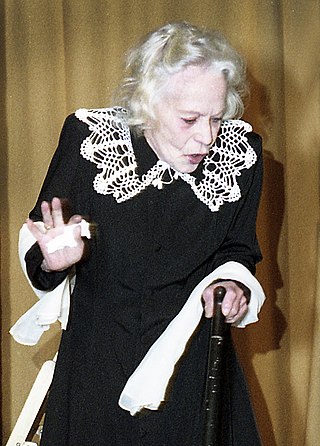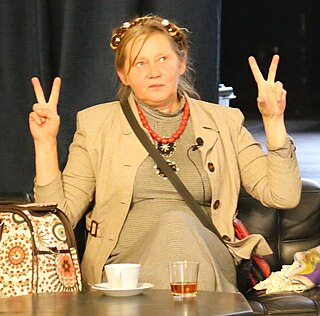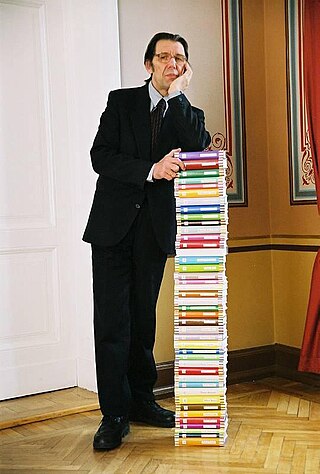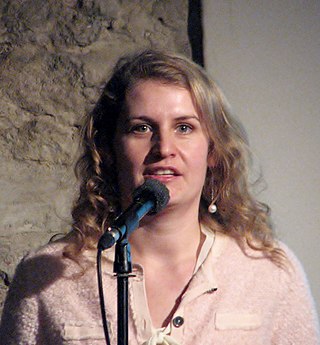Estonian orthography is the system used for writing the Estonian language and is based on the Latin alphabet. The Estonian orthography is generally guided by phonemic principles, with each grapheme corresponding to one phoneme.
Eesti Televisioon (ETV) is an Estonian free-to-air television channel owned and operated by Estonian Public Broadcasting. It made its first broadcast on 19 July 1955.
Juhan Viiding, also known under the pseudonym of Jüri Üdi was an Estonian poet and actor.

Estonian literature is literature written in the Estonian language

Rein Raud is an Estonian academic and author.

Mari Lill is an Estonian stage, film and television actress whose career began onstage in the late 1960s.

Ivo Uukkivi is an Estonian stage, film, radio, and television actor, television producer and, under the nickname Munk, founder of and singer with the punk band Velikije Luki.

Salme Helene Reek was an Estonian stage, film, radio, and television actress and stage director whose career spanned nearly seventy years; sixty-six of which were spent as an actress at the Estonian Drama Theatre.

Merle Jääger is an Estonian television, stage and film actress, poet and author who frequently uses the pen name Merca. Initially associated with the burgeoning Estonian punk rock scene of the early to mid 1980s, she has been described as the "bard of protest". Her career as an actress began in her early 20s and she has received a number of high-profile awards for stage roles.

Uno Loop was an Estonian singer, musician, athlete, actor, and educator. Loop's career as a musician and singer began in the early 1950s. He performed with various ensembles and as a popular soloist beginning in the 1960s. In his youth, he trained as a boxer, and became the 1947–48 light-middleweight two-time Estonian Junior Champion. Later, he trained as a triathlete. Between the late 1950s and the early 1990s, he taught music, voice and guitar. Loop also worked as an actor, and appeared in several films beginning in the 1960s and in several roles in Estonian television series.

Hando Runnel is an Estonian poet.

Maarja Jakobson is an Estonian television, stage and film actress whose career began in the late 1990s.

Tiit-Rein Viitso was an Estonian linguist.

Helle Metslang is an Estonian linguist.

Mati Erelt was an Estonian linguist.
Reet Kasik is an Estonian linguist.

Mari Uusküla is an Estonian linguist.

Piret Saluri is an Estonian translator and diplomat.













